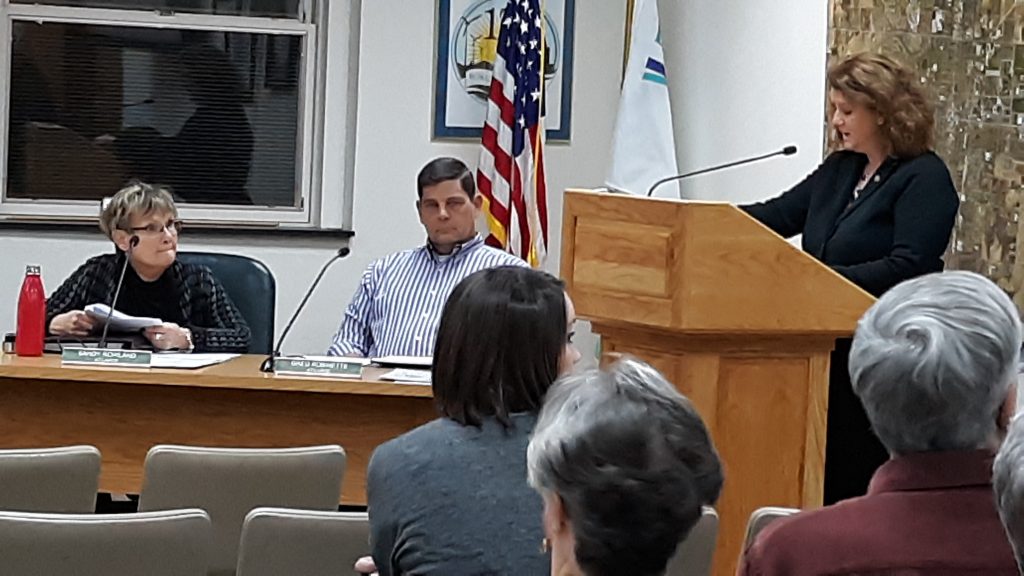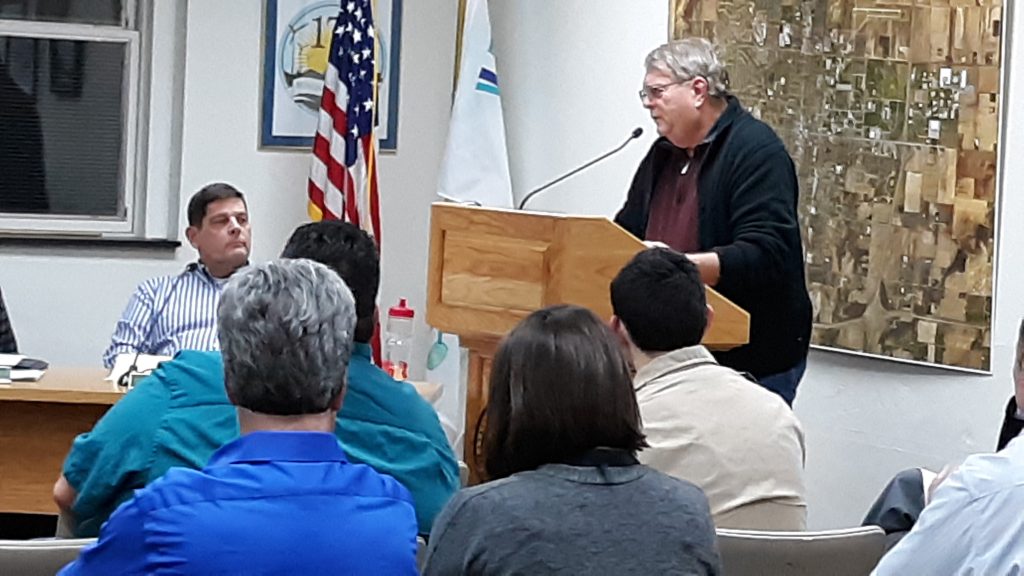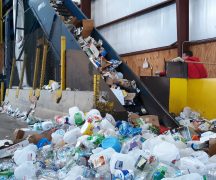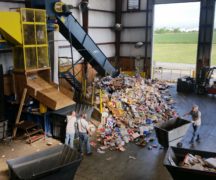By JAN LARSON McLAUGHLIN
BG Independent News
The city of Bowling Green will be paying much more for recycling next year – but its citizens will be able to toss more items into their recycling bins.
Much will remain the same for city residents – they will still use their blue recycling bins, which will be collected on the same day as usual, by the same city crews as usual.
But there will be two major differences. The recyclables will be trucked to Toledo, rather than the Bowling Green Recycling Center.
And the bins might be much heavier as they pull them out to the curb, since the new contractor will accept glass, more types of plastics, metal cans, cardboard, newspaper, magazines, paperback books, phone books, and paper food containers.
Bowling Green Recycling Center will no longer be handling the city’s curbside recycling after Dec. 31. The center, which has received Bowling Green’s recycling for 41 years, will continue to take drop-off items, but will no longer handle items collected curbside.
Earlier this fall, the Bowling Green Recycling Center requested that its current funding be increased from $80,000 to $215,000 a year.

So Municipal Administrator Lori Tretter asked City Council to allow the administration to seek other bids to accept city recyclables. Council agreed. One proposal was submitted by Republic.
The other, from BG Recycling Center, asked to no longer be involved in curbside efforts. The local recycling center, however, offered to continue operating the 24-hour drop-off site for $24,000 a year. The drop-off site takes in about 1,000 tons of recyclables a year.
“There’s a huge value to that drop-off center here in Bowling Green,” Tretter said.
On Monday, City Council reviewed an ordinance allowing the municipal administrator to enter into a contract with Republic Services for curbside recycling. Due to the time crunch, council had two readings of the ordinance Monday evening, then will likely pass it with an emergency clause at the Dec. 30 meeting.
“We have had a long and successful and proud history of recycling in Bowling Green,” Tretter said Monday evening.
But the recycling operation could not continue as it has.
“The environment for recycling has changed dramatically,” Tretter said.
Bowling Green Recycling Center officials said they could no longer afford to operate the facility at the current rate from the city – and were losing money after changes experienced in the industry.
A combination of market changes, declining newspaper products, and China’s refusal to buy American recyclables has created an upheaval in recycling programs nationwide.
Newspaper used to be the real money-maker in recycling, Ken Rieman, chairman of the BG Recycling Center, explained. In 2009, the center took in 1,000 tons of newspaper. It still brings in $100 a ton – but the amount of newspaper has shrunk down to about 300 tons this year. And if it’s mixed with magazines, its worth is cut to about $10 a ton.
“The materials in the markets have changed, and we’ve got to change with it,” Rieman said. “Council has a big decision to make.”
BG Recycling Center started accepting co-mingled recyclables about 10 years ago – when no one else was, he said. But the markets have tanked, the equipment is getting old, and it’s becoming more labor-intensive, Rieman said.
But Bowling Green residents remain committed to recycling.
The Republic proposal charges the city $172.75 per ton for recyclables. The city collects 700 tons curbside each year now – and the addition of glass could increase that to 1,100 tons a year.
That adds up to about $190,025 a year. However, Republic also has a rebate business model that shares the money earned by the sale of the recyclables. That rebate would fluctuate a lot, but it could drop the city’s annual cost to about $164,000.
Worst-case scenario, without any rebate, the city will pay $190,025 for curbside and $24,000 for drop-off recycling – a total of $214,025.
The city will also use its trucks to transport the recyclables to Republic’s Toledo location. Tretter estimated the trucks would make one or two trips there each week – and will actually help the diesel engines reach higher speeds needed to burn off contaminants.
Republic handles recyclables for many area communities, like Toledo, Perrysburg, Oregon and Sylvania.
A question was raised about how the city would handle its contract with Republic if the hauler put the recyclables into landfills.
“We would have to have a serious conversation with them,” Bowling Green Sustainability Coordinator Amanda Gamby said. “We’re paying for them being recycled” which is much more expensive than if the city paid to landfill the items.
“We’ve been assured they will not landfill items,” Gamby said. Council asked that stipulation be put in the contract.
Council member Sandy Rowland pointed out recycling businesses in the city, and asked for Gamby’s thoughts on the future of recycling.
Gamby said the U.S. needs to look at more domestic investments, since many companies want to produce items made from a percentage of recyclable goods.
It’s just a question of “how much is a community willing to pay,” she asked.
Council President Mike Aspacher said Bowling Green isn’t alone with this dilemma.
“The same conversation is taking place in many areas across the country,” he said.
But Aspacher said he is pleased with the Republic option presented.
“I wasn’t terribly optimistic” when the city asked for proposals, he said. “It almost seems like it’s about as good as we’re going to do.”
The city and its citizens aren’t ready to give up on recycling.
“We’ve been committed to it,” Aspacher said. “It’s a social responsibility.”
Aspacher said on his way to City Council Monday evening he drove around his neighborhood, which has trash and recycling pickup on Tuesday. Nearly every home had both a trash and recyclable bin out by the curb.
“It’s been encouraging to see how the community has embraced it,” council member Bill Herald said.

Rieman said he understands the city’s step to contract with Republic.
“We’re certainly not upset that the community wants to recycle,” he said. “You’re talking to guys who started the curbside recycling.”
Rieman said the Bowling Green Recycling Center worked hard to sort items, and only landfilled items that weren’t recyclables. He cautioned that unless the markets change, the drop-off site may lose money.
“We’re committed to trying to make it work as long as we can,” he said.
Rieman also encouraged employers in the community to consider hiring the people from Work Leads to Independence, who will be displaced by the end of the curbside recycling operation in BG.





